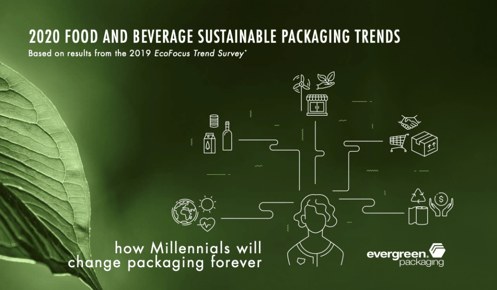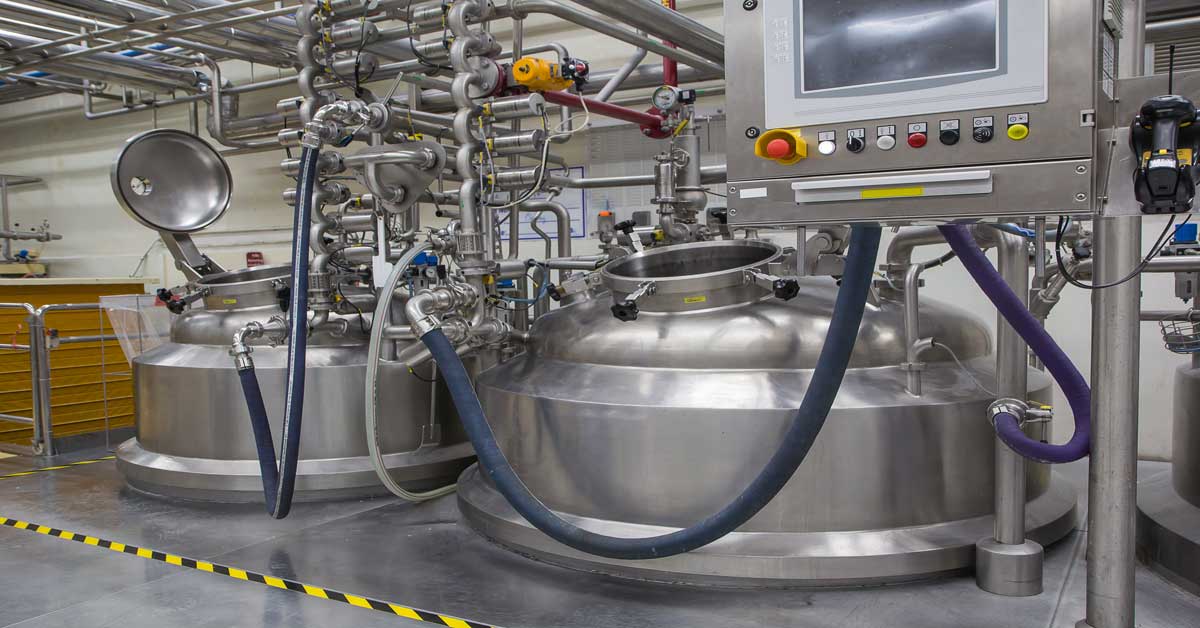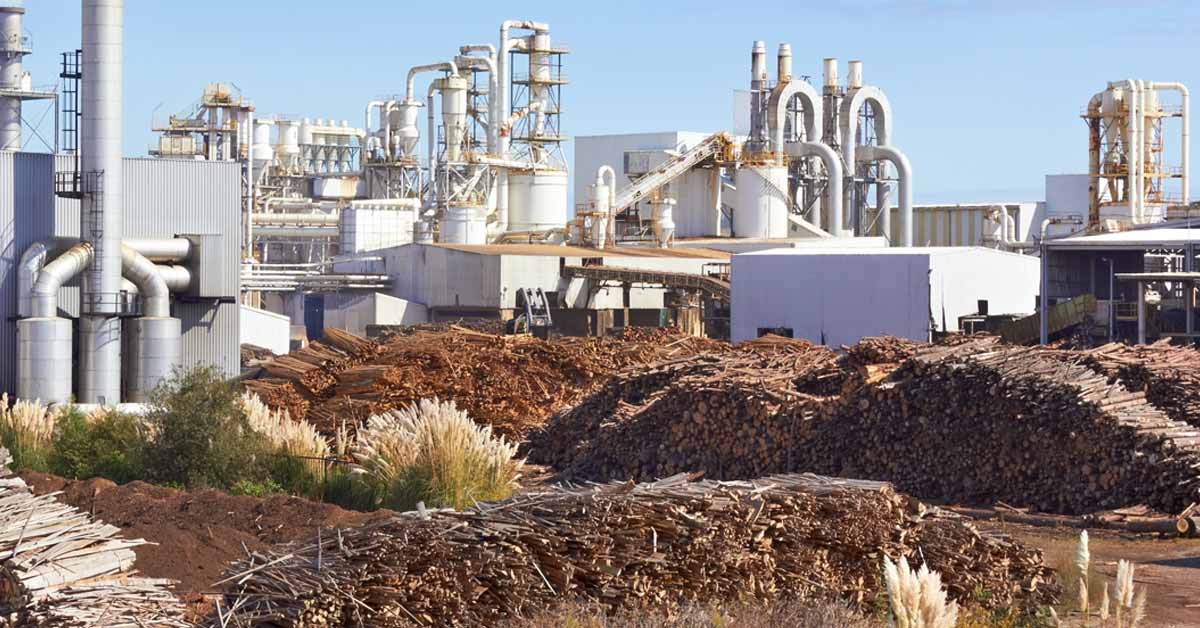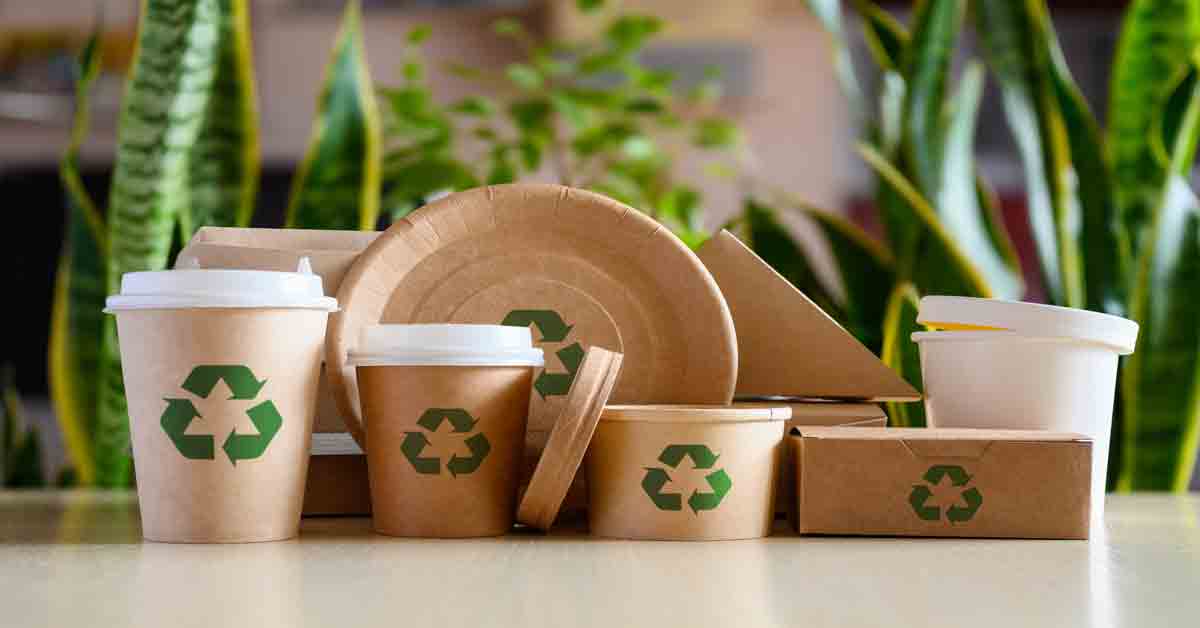(This article originally appeared on the Sustainable Forestry Initiative blog)
Millennials are changing the way we look at the world in many ways—including how we package the food and beverages we eat and drink every day. The EcoFocus Worldwide 2019 U.S. Trends Survey shows millennials place a much higher value on sustainability than previous generations and packaging is no exception.
This is good news for forests and the planet. Forest-based packaging helps to reduce the demand for plastic packaging and supports solutions to the oceans’ plastics crisis. Forests also store carbon, which has positive implications for climate change mitigation.
Sustainably managed forests can produce a steady supply of packaging materials to make a wide range of food and beverage containers. These containers can be recycled to provide needed feedstock for paper mills to create new products like packaging, tissue products, and printing and writing paper.
 These types of products can become part of a circular economy. Today’s challenges linked to COVID-19 are forcing us all to rethink what the economy will look like in the future. The fact that millennials are focused on sustainability could help shape how we see sustainably managed forests as part of the solution to pressing environmental concerns in a post-COVID-19 world.
These types of products can become part of a circular economy. Today’s challenges linked to COVID-19 are forcing us all to rethink what the economy will look like in the future. The fact that millennials are focused on sustainability could help shape how we see sustainably managed forests as part of the solution to pressing environmental concerns in a post-COVID-19 world.
Using the Sustainable Forestry Initiative (SFI) label is a great way to show that packaging and other products come from a sustainably managed forest. The label is used on more than 300,000 products in 120 countries.
“The SFI label is a tool that allows producers to educate the market and consumers to make responsible purchasing decisions. SFI certification promotes forest management that supports biodiversity, water quality, and carbon sequestration,” says Derric Brown, Director of Sustainability at Evergreen Packaging.
Five keys to understanding how millennials are changing sustainable packaging
The EcoFocus Trends Survey, from EcoFocus and Evergreen Packaging LLC, identified five keys to understanding what millennials say and think when they talk about sustainable packaging.
- A healthier planet means a healthier me
- Healthier foods and beverages are even healthier in sustainable packaging
- Food and beverages need to come in packaging that supports sustainable practices
- Brand owners will build trust by acting more responsibly towards the environment
- It is worth paying more for eco-friendly products
Download the whitepaper 2020 Food and Beverage Sustainable Packaging Trends from Evergreen Packaging to learn more.
SFI is helping millennials (and everyone else) make sustainable packaging choices
The EcoFocus Trends Survey showed that 74% of millennials who are aware of the SFI label say it is a positive influence when they are making product decisions, compared with 62% of boomers. SFI on‑product labels let consumers choose packaging that is sourced from sustainably managed forests.
Millennials are changing packaging by making sustainability a priority. This generation wants brands to offer sustainable choices. Doing business with millennials means offering products that show you are conserving natural resources, using renewable materials, and practicing sustainable forestry and regenerative agriculture.
Supporting millennials’ buying preferences means a healthier planet for all of us.
EcoFocus Worldwide conducts consumer research and provides consultation for the food and beverage industry, and their ingredient, packaging, and communications partners.









